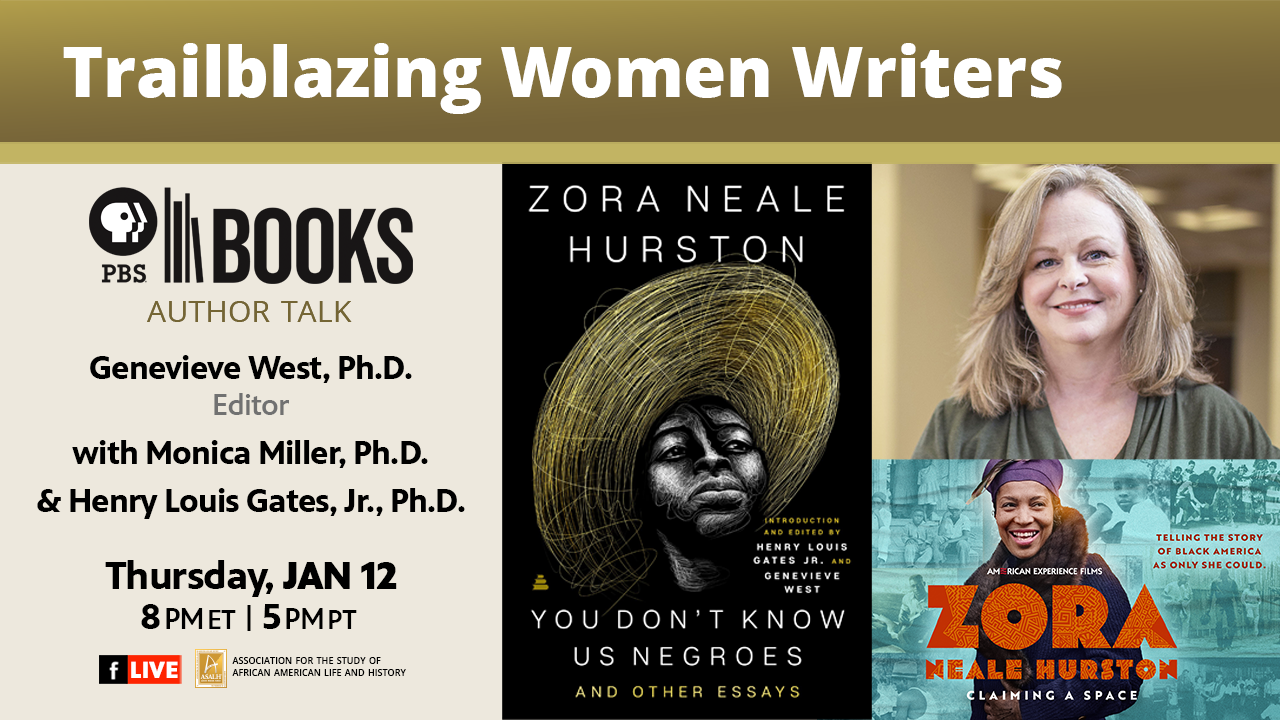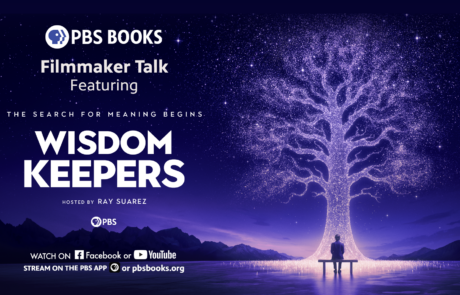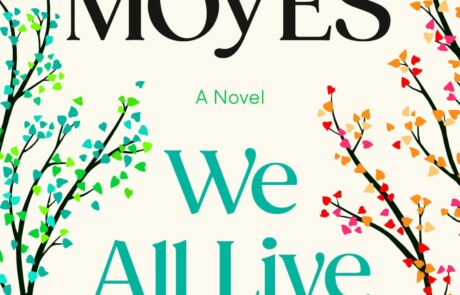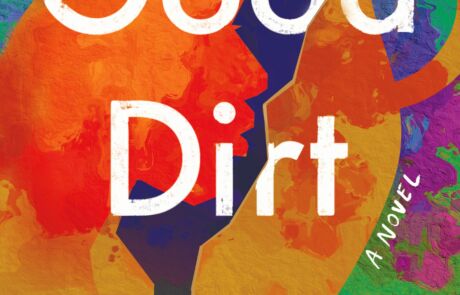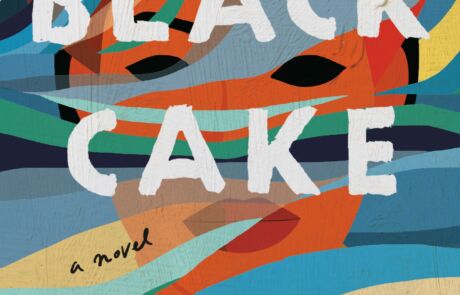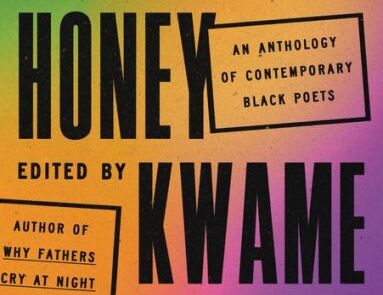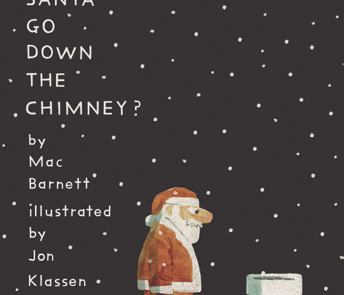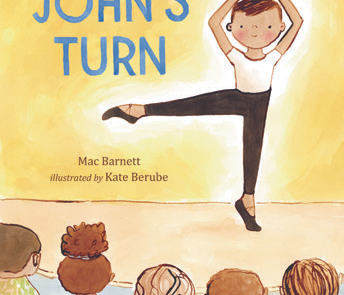PBS Books, in collaboration with the Association for the Study of African American Life and History (ASALH), is pleased to host a program about Zora Neale Hurston’s latest book You Don’t Know Us Negroes & Other Essays with co-editor Genevieve West, Ph.D. in conversation with Monica Miller, Ph.D., in connection with AMERICAN EXPERIENCE ZORA NEALE HURSTON: CLAIMING A SPACE. Co-editor Henry Louis Gates, Jr. will welcome viewers to the program on January 12 at 8pm ET| 5pm PT.
Join us and learn about this important collection of Zora Neale Hurston’s work that spans more than three decades and how it came to be released in 2022. Also, you’ll hear a bit about another essay collection by Hurston–Hitting A Straight Lick with A Crooked Stick.
Don’t miss AMERICAN EXPERIENCE’s ZORA NEALE HURSTON: CLAIMING A SPACE premieres on January 17 at 9pm ET on PBS, check your local listing or stream at pbs.org.
ABOUT THE BOOK: YOU DON’T KNOW US NEGROES & OTHER ESSAYS
You Don’t Know Us Negroes is the quintessential gathering of provocative essays from one of the world’s most celebrated writers, Zora Neale Hurston. Spanning more than three decades and penned during the backdrop of the birth of the Harlem Renaissance, Montgomery bus boycott, desegregation of the military, and school integration, Hurston’s writing articulates the beauty and authenticity of Black life as only she could. Collectively, these essays showcase the roles enslavement and Jim Crow have played in intensifying Black people’s inner lives and culture rather than destroying it. She argues that in the process of surviving, Black people re-interpreted every aspect of American culture—”modif[ying] the language, mode of food preparation, practice of medicine, and most certainly religion.” White supremacy prevents the world from seeing or completely recognizing Black people in their full humanity and Hurston made it her job to lift the veil and reveal the heart and soul of the race. These pages reflect Hurston as the controversial figure she was—someone who stated that feminism is a mirage and that the integration of schools did not necessarily improve the education of Black students. Also covered is the sensational trial of Ruby McCollum, a wealthy Black woman convicted in 1952 for killing her lover, a white doctor. Demonstrating the breadth of this revered and influential writer’s work, You Don’t Know Us Negroes and Other Essays is an invaluable chronicle of a writer’s development and a window into her world and mind.
ABOUT THE EDITOR: GENEVIEVE WEST, Ph.D.
Genevieve West, Ph.D. is Professor of English and Chair of the Department of Language, Culture, and Gender Studies at Texas Woman’s University, the nation’s largest public institution primarily for women, where she teaches African American, American, and women’s literatures and serves as an Affiliate Faculty in the Multicultural Women’s and Gender Studies program. Her scholarship takes intersectional, historically situated, archival approaches to the literary productions of American women writers. She has published on Zora Neale Hurston in journals such as African American Review, AmerikaStudien/American Studies, Receptions, and Women’s Studies. Her book, Zora Neale Hurston and American Literary Culture (2005) examines the ebb and flow in Hurston’s reputation by accounting for her marginalization beginning in the 1930s and her recovery in the years following her death in 1960. Recently, West edited a volume of Hurston’s Harlem Renaissance short fiction, Hitting a Straight Lick with a Crooked Stick (2020), which made available for scholars and popular readers alike a number of “lost” stories. With Henry Louis Gates, Jr., she co-edited the first comprehensive collection of Hurston’s essays and reportage, You Don’t Know Us Negroes (2022). This volume, too, restored a number of previously unpublished works to Hurston’s oeuvre. Her essay ”Subversions of Boasian Anthropology in Zora Neale Hurston’s Great Migration Fiction and Ethnography” appeared this year in African American Literature in Transition, 1920-1930. Her essay on “lost” works by Marita Bonner is forthcoming in African American Review.
ABOUT THE MODERATOR: MONICA L. MILLER, PH.D.
Monica L. Miller is Ann Whitney Olin Professor of Africana Studies and English at Barnard College, Columbia University. A specialist in contemporary African American and Afro-diasporic literature and cultural studies, she is the author of the award-winning book Slaves to Fashion: Black Dandyism and the Styling of Black Diasporic Identity. A grantee from the Andrew W. Mellon Foundation, the Schomburg Center for Research in Black Culture, and the Institute for Citizens & Scholars, she is a frequent commentator in the media and arts worlds and teaches and writes about black literature, art, and performance, fashion cultures, and contemporary Black European culture and politics
ABOUT THE EDITOR: HENRY LOUIS GATES, JR.
Henry Louis Gates, Jr. is the Alphonse Fletcher University Professor and Director of the Hutchins Center for African & African American Research at Harvard University. Emmy and Peabody Award-winning filmmaker, literary scholar, journalist, cultural critic, and institution builder, Professor Gates’s most recent books are Stony the Road: Reconstruction, White Supremacy, and the Rise of Jim Crow and The Black Church: This Is Our Story, This Is Our Song. He has also produced and hosted more than 20 documentary films, most recently The Black Church on PBS and Black Art: In the Absence of Light for HBO. Finding Your Roots, his groundbreaking genealogy and genetics series, is now in its eighth season on PBS. It has been called “one of the deepest and wisest series ever on television,” leveraging “the inherent entertainment capacity of the medium to educate millions of Americans about the histories and cultures of our nation and the world.” The recipient of 56 honorary degrees and numerous prizes, Professor Gates was a member of the first class awarded “genius grants” by the MacArthur Foundation in 1981, and in 1998, he became the first African American scholar to be awarded the National Humanities Medal. He was named to Time’s25 Most Influential Americans list in 1997, to Ebony’s Power 150 list in 2009, and to Ebony’s Power 100 list in 2010 and 2012.
ABOUT THE FILM: ZORA NEALE HURSTON: CLAIMING A SPACE
Raised in the small all-Black Florida town of Eatonville, Zora Neale Hurston studied at Howard University before arriving in New York in 1925. She would soon become a key figure of the Harlem Renaissance, best remembered for her novel, Their Eyes Were Watching God. But even as she gained renown in the Harlem literary circles, Hurston was also discovering anthropology at Barnard College with the renowned Franz Boas. She would make several trips to the American South and the Caribbean, documenting the lives of rural Black people and collecting their stories. She studied her own people, an unusual practice at the time, and during her lifetime became known as the foremost authority on Black folklore.
Directed by Tracy Heather Strain, produced by Randall MacLowry and executive produced by Cameo George, Zora Neale Hurston: Claiming a Space is an in-depth biography of the influential author whose groundbreaking anthropological work would challenge assumptions about race, gender and cultural superiority that had long defined the field in the 19th century.


